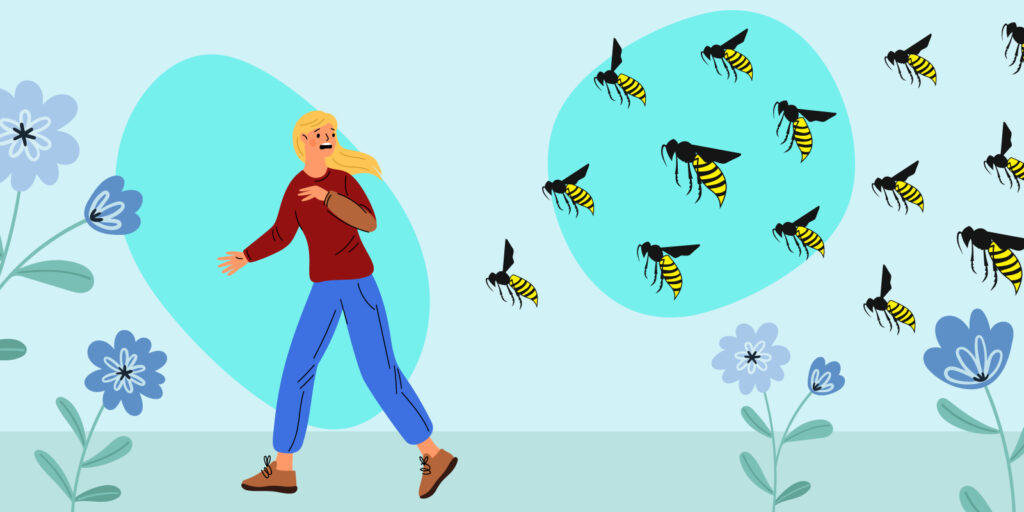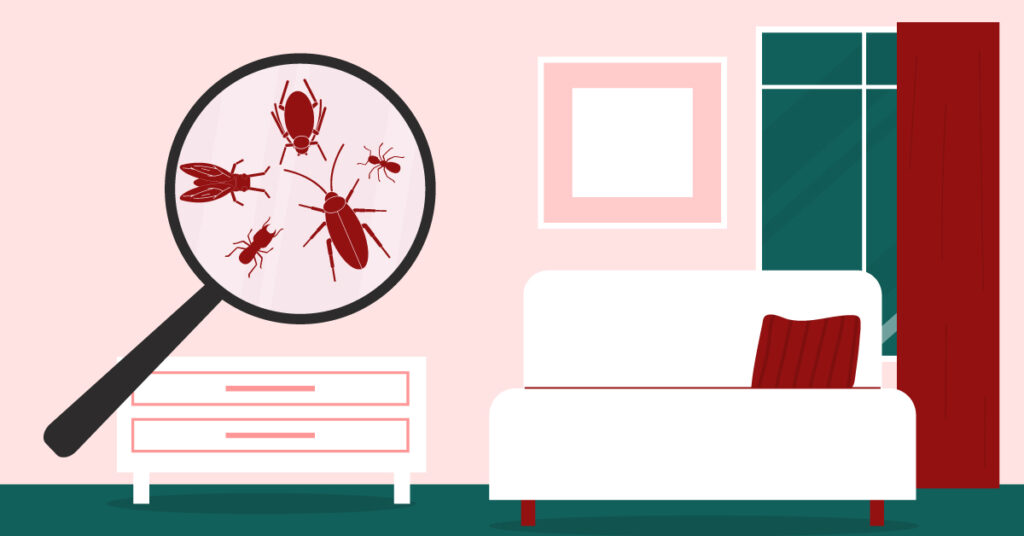From warm weather to outdoor activities, there are many benefits to the spring and summer seasons. Unfortunately, this time of year also comes with a major downside—wasps. Around April, queen wasps begin hunting for places to build nests. Sheltered areas, such as garages, sheds and window frames, are often targeted.
If you’ve noticed a wasp nest around your home, chances are you want to get rid of it. Keep reading to discover our top nine natural wasp killers.
Should I Get Rid of Wasps?
Before we go over natural methods for eliminating wasps, it’s important to determine whether they’re worth killing in the first place. Generally, if the nest is not bothering you, there’s no need to get rid of it. As the weather gets colder, most male wasps will die, while the queen wasp will leave to hibernate. Prior to leaving, wasps seal their nests so that they cannot be reused.
When a nest is dangerously close to your home, however, you don’t want to wait until autumn. Wasps are territorial creatures – if they sense you’re a threat, they may sting you. Not only are stings painful, but they can also cause symptoms like redness, swelling and hives. In severe cases, wasp stings can trigger life-threatening allergic reactions. In the United States, approximately 2 million people have insect venom allergies.
Once you’ve decided it’s worth killing a wasp’s nest, the next step is finding safe, effective ways to do so. That’s where natural wasp killers come in.
9 Natural Wasp Killers

If you’ve considered getting rid of wasps before, you might have searched online for chemical solutions. However, unless you’re a professional, it’s generally not a good idea to use chemical products. Some chemicals may irritate or damage the eyes and skin, while others are unsafe to breathe in. Thus, you should stick with natural solutions instead. Here are nine of our favorite natural wasp killers.
1. Lemon Extract
Lemon extract is more than just an excellent addition to desserts — it’s also an effective method for getting rid of wasps. Just take a few tablespoons of extract, mix them with a cup of water and pour the solution into a spray bottle. Not only will this mixture kill wasps, but the scent will also prevent any from returning.
2. Essential oils
Humans may enjoy the scent of essential oils, but wasps can’t stand them. Here are a few essential oils that can kill wasps:
- Lemongrass
- Clove
- Geranium
For the best results, mix these three oils together and add some dish soap. Then, spray the wasp’s nest, as well as any vulnerable areas around your home. If you have young children or pets at home, keep in mind that some essential oils can be toxic for them.
3. Dish Soap
If you’re looking for a convenient, natural wasp killer, dish soap fits the bill. Not only is it effective, but you also probably already own some. To make this solution, simply fill a spray bottle about halfway with water, then add a quarter cup of dish soap. The soapy water will make wasps suffocate.
4. Plants
Are wasps infiltrating your yard? If so, it might be time to exercise your green thumb. Plenty of plants emit aromas that wasps don’t like. Some of the most popular wasp-repelling plants include:
- Thyme
- Peppermint
- Eucalyptus
- Citronella
- Wormwood
- Spearmint
While these plants won’t necessarily kill wasps, they can repel them and discourage wasps from returning next year.
5. Chili Peppers
If you’re a fan of spicy food, you might have some hot chili peppers in your kitchen. You can turn this ingredient into a wasp-killing spray by chopping up a few peppers, boiling them in water and then pouring the mixture into a spray bottle. Be careful not to spray your eyes or skin, as peppers can cause irritation.
6. Talcum Powder
Believe it or not, talcum powder can drive away and even kill wasps. Many talcum powders have small amounts of boric acid, which is toxic to the insects. All you have to do is sprinkle the powder around the nest. If just one wasp encounters it and brings it back into the nest, it can affect the whole colony.
7. Powdered Cinnamon
Don’t have any talcum powder on-hand? You can use powdered cinnamon instead. Eugenol, a key active ingredient in cinnamon, is known to repel wasps. Just sprinkle some of the spice around the nest, and you’re good to go. However, it’s worth noting this won’t kill the wasps; it will just keep them from hanging out in that area. You’ll also have to apply this regularly to be the most effective.
8. Vinegar and Soap
If you’re nervous about spraying a wasp’s nest, you can make a trap instead. All you’ll need are the following ingredients:
- 2 cups of white or apple cider vinegar
- 2 cups of sugar
- 1 cup of warm water
- 1/4 cup of dish soap
Mix the apple cider vinegar, sugar and water in a bowl. Once the sugar is dissolved, add in the dish soap. Then, pour the mixture into a bottle with a narrow opening and leave it near the nest. If the nest is elevated, you may need to hang the bottle from a string. It’s also helpful to make multiple traps.
So, how exactly does the trap work? First, it lures in wasps with the sugar. When the wasps enter the bottle, the mixture covers their wings and prevents them from flying out. It’s also difficult for them to escape due to the narrow opening. Over time, the wasps will suffocate.
9. Jam In a Jar
Another way to make a wasp trap is by putting jam in a glass jar. First, create a small hole in the jar’s lid. It should be just big enough for wasps to enter. Then, smear some jam on the lid and add a bit of honey or sugar water inside the jar. The sugary substances will attract wasps — once they enter, however, they will struggle to find their way out.
Preventative Measures
From soap to cinnamon, there are plenty of safe, effective solutions for getting rid of wasps. While some of these methods may help deter wasps from coming back next spring, many of them are geared toward eliminating existing colonies. Fortunately, here are some preventative measures you can take to deter these pesky insects from returning.
- Get rid of food scraps: If you have food scraps around your home, you’re bound to attract some wasps. In addition to sealing food and cleaning crumbs, it’s advisable to seal your trash cans.
- Seal cracks and crevices: Wasps love to dig into cracks and holes. To prevent them from getting comfortable in your home, you should seal any noticeable cracks in areas like garages or sheds.
- Invest in a decoy nest: Wasps don’t want to build nests near other colonies. Thus, if a queen wasp notices a nest is already in the area, she won’t stop there. Decoy nests can help fool wasps.
Although preventative measures are a great way to stop infestations, they won’t guarantee that a colony won’t settle by your home.
Give Wasps The Boot This Summer
While none of us like spending our summer with wasps, many people aren’t familiar with the different ways to repel or kill these pests. We’ve provided nine natural ways to keep wasps from crashing your BBQs this summer. However, if you have a recurring wasp problem or if the infestation is severe, you should contact a local pest control expert.
You might also be interested in: The 15 Most Common House Pests That Wreak Havoc




